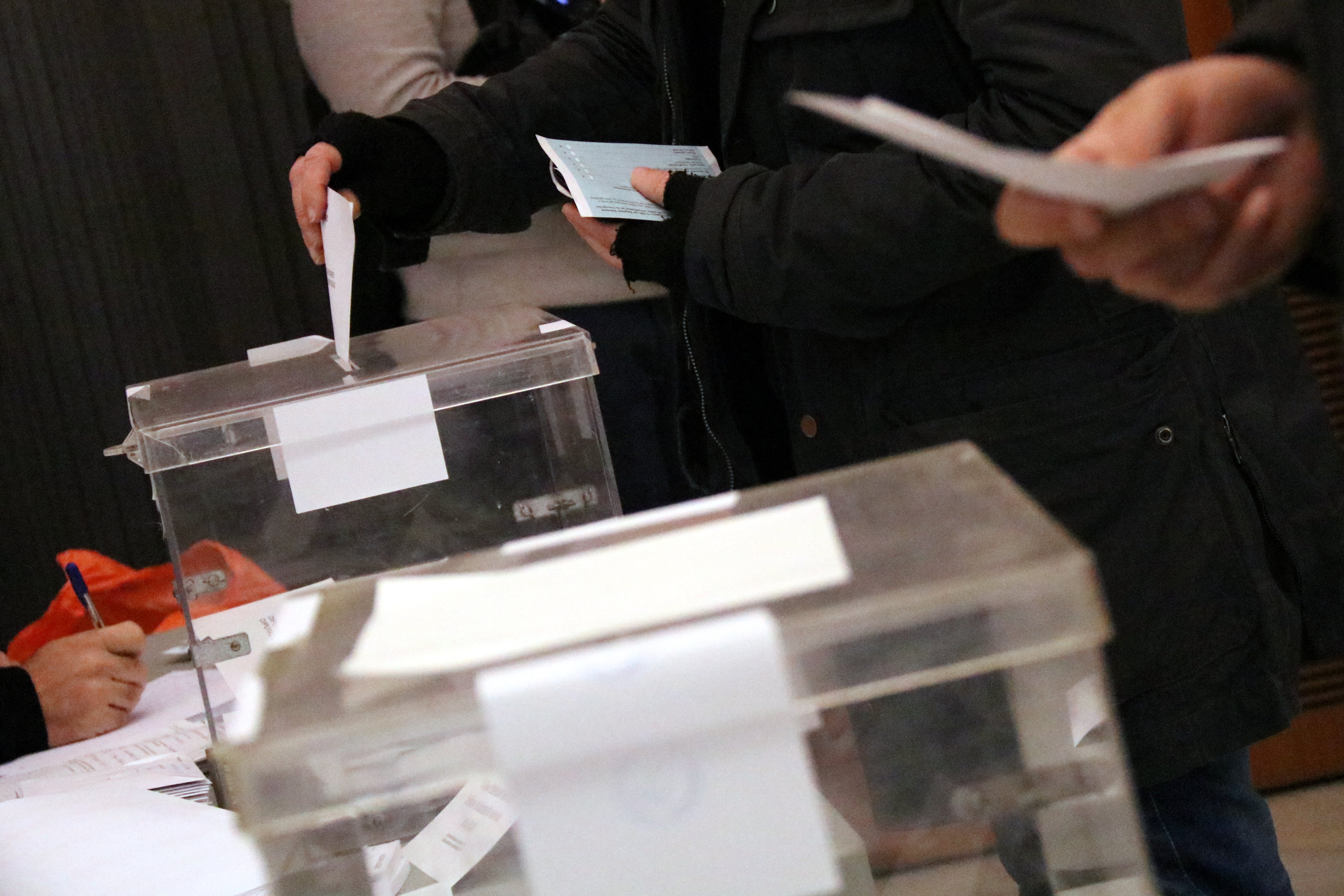In a month's time, the coronavirus outlook in Catalonia will remain bleak. As the Catalan elections scheduled for 14th February approach, the epidemiological situation will be critical, especially in intensive care units, which are likely to reach their peaks of occupancy just a few days before voters are due to go to the polls. This is the conclusion of the report which the Catalan health department has delivered today to the representatives of all political parties at the first part of the meeting which must try and find consensus - by Friday - on whether the elections should be held or postponed.
The eight-page document avoids taking a position on whether or not to suspend the elections, but sets out the two most likely scenarios in which Catalonia may find itself in the coming weeks. One is bad, the other, worse. Both predict that the highest point of contagion will be just before the start of the election campaign: in one case at the end of January; the other, between 4th and 10th February. And the critical care units in Catalan hospitals will be close to their highest point of Covid bed occupancy.
The prognosis is that on Catalonia's electoral D-Day there will be between 610 and 840 coronavirus patients in ICUs. At present, there are 470 such patients, and non-urgent operations are already being rescheduled.
According to the forecasts presented by health secretary general Marc Ramentol, the restrictions adopted on January 7th and due to last until the 18th will reduce the speed of transmission, from its current range of 1.1 to 1 2, to a level of around 0.9. However, once the measures are eliminated, from January 18th, a slight rise is expected to return the Rt to the balance point of 1.
5,000 infections a day
The less pessimistic scenario of the two predicts that the number of daily new infections on February 14th, will be 3,000, down from a peak of around 5,000 on January 20th. The second scenario, the bleakest, predicts that on the Valentines Day election date Catalonia will be seeing 5,000 new infections a day and the peak will have been reached in the penultimate week of January, with 6,000 cases per day. This can be compared with the current figures: this weekend of the 9th-10th, close to 4,000 new cases have been confirmed per day.
The final decision, with the Catalan government
The political parties' committees, after meeting this Monday, will reconvene on Friday to give its final view. It will have the benefit of a new report to be issued by the Health Department and which, as Catalan government sources told ElNacional.cat, will be delivered to the parties the day before, on Thursday. The following day all the parties in the Catalan parliament, represented on the committee, will discuss it and try to reach the maximum consensus on whether or not to postpone the date with the polls. The final word lies with the Catalan government. Last week, minister Bernat Solé, responsible for the area of electoral processes, told this newspaper in an interview that with the situation as it was on 4th January, the elections could be held.
The forecasts presented in the report are based on two scenarios designed by the Computational Biology and Complex Systems Research Group (BIOCOMSC) - part of the UPC university - in collaboration with the public health provider Institut Català de Salut.
If the final decision ends up being to postpone the elections, the new date, which could be in the spring,will be decided at the same meeting.
Catalan ombudsman, looking at the question
On Tuesday, a commission of independent experts created ad hoc by the Síndic de Greuges - the office of the Catalan ombudsman - will meet to address the possibility of holding elections in the midst of a pandemic. On Wednesday there will be a public statement.
Over the weekend, one of the members of this working group was already giving clues as to where its opinion might fall. Magda Campins, head of the Preventive Medicine and Epidemiology service at Vall d’Hebron Hospital, made it clear on TV3’s FAQS programme that, in her view, the elections cannot be held.

